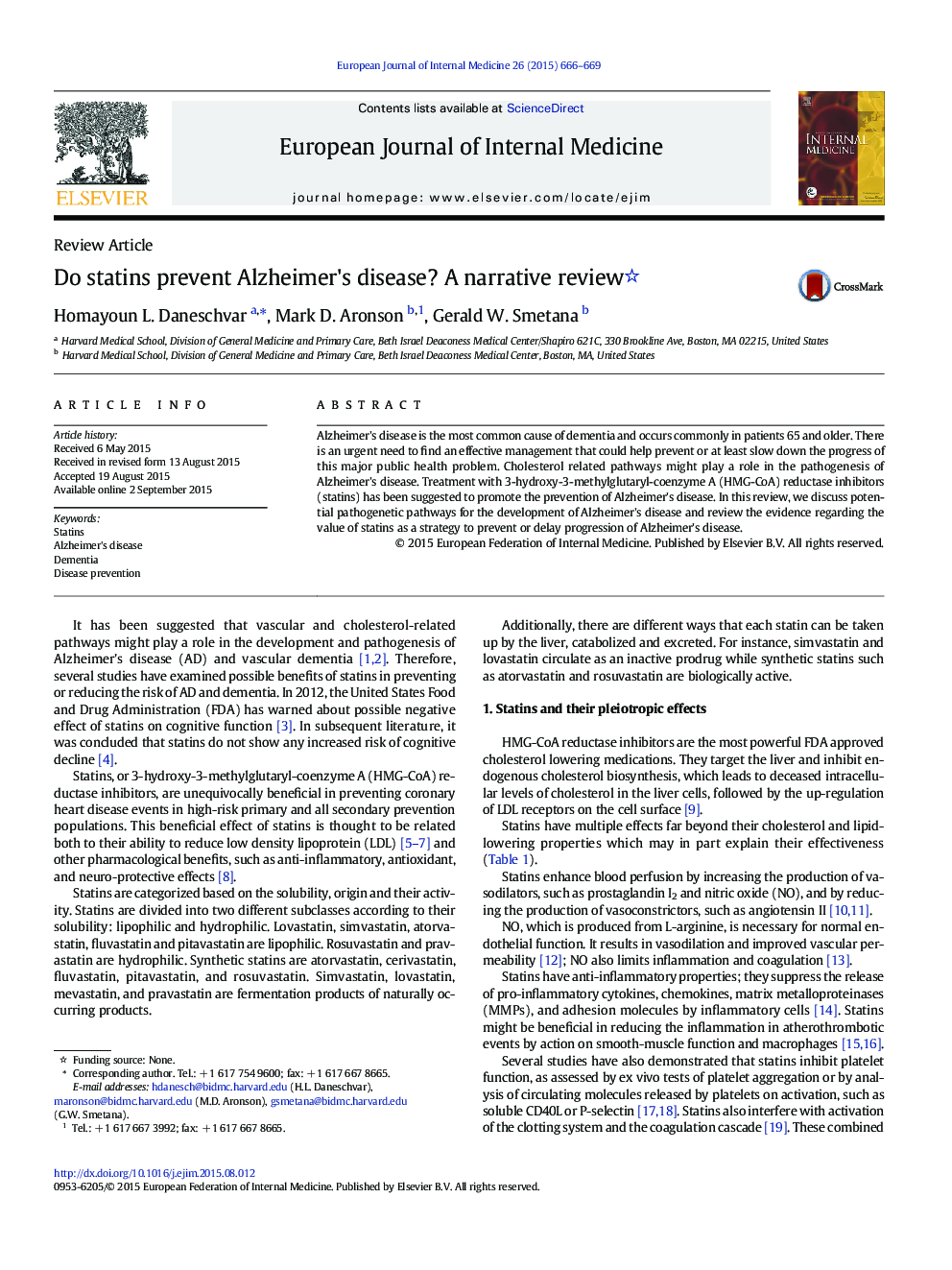| Article ID | Journal | Published Year | Pages | File Type |
|---|---|---|---|---|
| 3466034 | European Journal of Internal Medicine | 2015 | 4 Pages |
•Cholesterol-related pathways might play a role in development of Alzheimer's disease.•Cholesterol may accelerate the production of the Alzheimer's-related amyloid Aβ.•Statins are beneficial in preventing heart disease in high-risk populations.•Statins have multiple effects far beyond their cholesterol and lipid-lowering properties.•Currently, statins cannot be recommended for Alzheimer's disease prevention.
Alzheimer's disease is the most common cause of dementia and occurs commonly in patients 65 and older. There is an urgent need to find an effective management that could help prevent or at least slow down the progress of this major public health problem. Cholesterol related pathways might play a role in the pathogenesis of Alzheimer's disease. Treatment with 3-hydroxy-3-methylglutaryl-coenzyme A (HMG-CoA) reductase inhibitors (statins) has been suggested to promote the prevention of Alzheimer's disease. In this review, we discuss potential pathogenetic pathways for the development of Alzheimer's disease and review the evidence regarding the value of statins as a strategy to prevent or delay progression of Alzheimer's disease.
